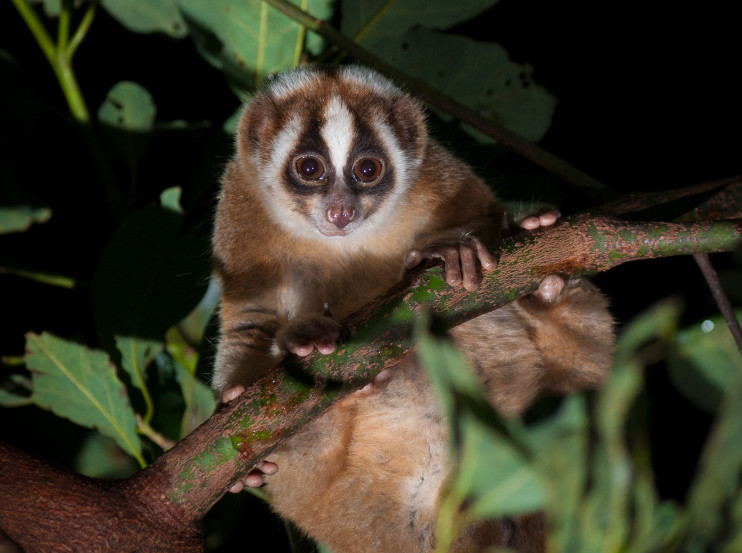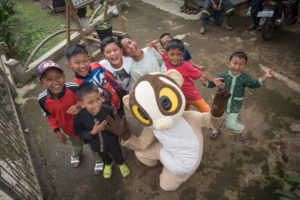Slow lorises and climate in Java

Investigating the effects of agriculture and climate change on slow lorises
Slow lorises are targeted for the illegal pet trade, under threat from a degraded and shrinking forest habitat, and are suffering from the effects of climate change.
The problem
The Javan slow loris has sadly recently been reclassified as critically endangered
Slow lorises are under threat for many reasons. They are targeted for the illegal pet trade because they look so appealing; their forest habitat is being degraded and cut down; and they also face a multitude of threats as a consequence of an ever-changing climate.
The solution
The Little Fireface team are seeking to address the above issues in various ways. They are engaged both in active fieldwork and on social media to help curb the current craze for slow lorises as pets, photo props and traditional medicines.
This year they’ve also been focusing on particular ecological studies of the species looking at how they use and regulate their energy. Their research is especially relevant now because of the growing threat of global climate change to our planet’s wildlife and because many animals, including slow lorises, are being forced up to higher and higher altitudes as human settlements and agriculture reach the steepest slopes where the last forests often remain. Climate varies with altitude and may be forcing our lorises to behave in new ways to survive.
The research is key to understanding this type of adaptation. Part of the study will also examine the potential role of lorises as plant pollinators. The data gathered will help inform local agroforestry practices and improve crop yield for farmers. As the single biggest threat to lorises at our field site in West Java is habitat destruction and disturbance due to farming practices, a focus of our work will be the introduction of new agroforestry practices to the area.
Agroforestry is the practice of integrating trees into agricultural systems. If done in a systematic and carefully considered way, trees on farms can have huge benefits. Planting trees on farmland can lead to carbon sequestration (which is key in tackling greenhouse gas driven climate change), better water and nutrient cycling (leading to higher crop yields for a reduced input), reduced soil erosion, natural disaster mitigation (by reducing flooding and landslides through soil stabilisation), increased animal biodiversity (through increased plant species diversity and increased habitat area), habitat restoration, economic benefits, and many other things besides.
We hope that our lorises and the other wildlife in the area will feel the positive effects of these changes in time, and that ultimately we instill pride in local people as to the value of the Javan slow loris, so that they themselves lead efforts to protect this and other locally rare and threatened species for future generations.
Latest news
 One of our lorises being monitored has just become a dad. Alomah, the baby of One Eye and Azka, has had a baby with Tereh. The team have named the new arrival Tombol (or Button!).
One of our lorises being monitored has just become a dad. Alomah, the baby of One Eye and Azka, has had a baby with Tereh. The team have named the new arrival Tombol (or Button!).- The project has made a 2017 calendar for the villagers in the study area, featuring themselves with giant loris mascot Tereh. The sales will generate a small amount of income and spark new interest in the conservation of their endangered primate neighbours.
- You can further support the project by buying some of their handmade gifts on the Little Fireface etsy shop.
